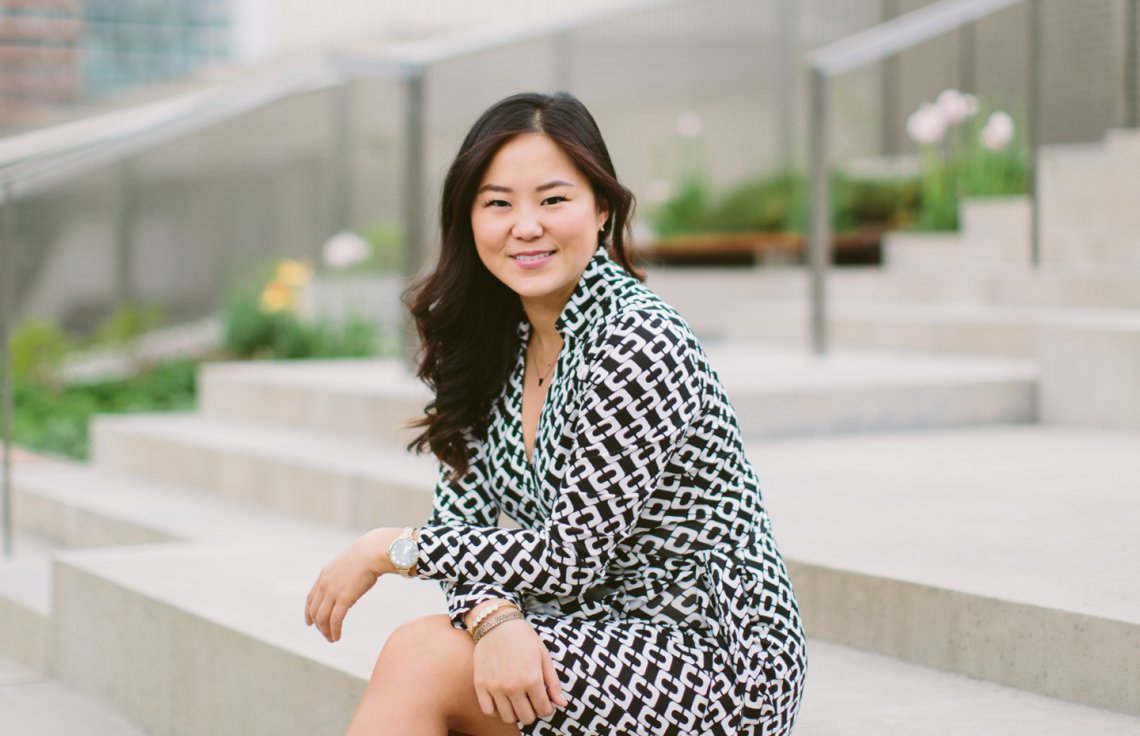Note from the Editor: This interview was originally published in 2016. Since then, Chou has moved on from the Department of State in order to help founders with her company Gloria Chou PR LLC.
In a millennial-ruled and digital world, we're understandably drawn to stories about career transitions. It's no secret that we're nothing like our parents' generation—there will be many job changes, moves to strange cities, and possibly even a business or two that we start ourselves. Still, it's easy to feel stuck in an industry or position that's not quite right, especially when the money's good and the perks are, well, rad.
Gloria Chou is the poster child for why taking the risk anyway and switching careers can completely change your life.
Gloria started her professional path in media production, moving up the ranks from an entry-level assistant on a cringe-worthy (really, though) reality TV show and ultimately landing a position working abroad, interviewing Nobel Prize winners for prime time television. Sound ideal? By most accounts it was until the fickle nature of the media industry meant that, suddenly, there was no work.
So Gloria veered off course, deciding to apply to graduate school and leave production behind. It was during this process that she found much more than higher education—she discovered a new calling. After landing the coveted Pickering Fellowship, Gloria found herself bound for a life in foreign affairs, where her love of person-to-person interactions and natural adaptability serve her better than anything she learned in school.
Ever wonder what people do at those U.S. consulates all day? Gloria's got plenty of answers for you.
Her Starting Point
Let’s start from the very beginning. Where did you grow up? How did your upbringing get you interested in foreign affairs and media relations?
I was born in Los Angeles but spent half of my childhood in Beijing, where my parents are from. Traveling to and from the U.S. and China instilled in me a curiosity for different cultures, languages, and ways of seeing the world. By the age of 18, I had moved 13 times. I remember always being the one to play “20 Questions” with any of our house guests, and I was quick to learn about video cameras and how to take photos at an early age.
As an undergraduate at UCLA, I quickly became involved in various film and media opportunities on and off campus, organizing film screenings with advocacy elements to increase engagement on human rights issues. I also took every chance I could as a non-film major to take classes in the film school. Deep down, I believe that we are all storytellers. Being a visual ethnographer has opened my eyes to what motivates people, communities, and organizations. As a diplomat, I carry that perspective with me—I believe we are united in our shared values despite political, linguistic, and cultural barriers.
You studied Political Science and International Development at universities on both sides of the U.S. and in Shanghai and Cape Town. What drew you to those programs? Did studying in different countries and places in the world affect your outlook?
I am a big believer in taking risks and placing yourself in new environments that will humble you, sharpen your skill set, and help you find your passions. I was fortunate enough to study abroad twice during my time at UCLA. I took that opportunity seriously and went to Cape Town, a place that couldn’t be further from Los Angeles, for six months. I wanted to go to a place I knew little about and challenge my preconceived notions about it. Despite criticism from my family and friends who were perplexed about my choice, I wouldn’t change it for anything. My time in South Africa resulted in countless friendships, personal growth opportunities, and I even made a few short films while I was there.
The program in Shanghai was my effort to really hone in on my Chinese language skills. In the field of international relations, these language skills can really give you a competitive edge. I now speak Chinese, Urdu, and a little bit of French.
Some people might have seen me as a wanderer or even aimless during that time, but now that I have worked and traveled in over 35 countries, I feel like I have family all across the globe.I bring these experiences with me as a diplomat—we move across the globe every 2-3 years. My next assignment is in Rio de Janiero, Brazil in 2017.
What was your first post-college job? Did you learn anything working that you couldn’t have learned in your university programs?
This is a funny story because no one would have guessed that my first post-college job would be on set of a Hoarders-esque reality TV show. I was a production assistant. [The job meant that] I did the house moving, cleaning, and packing for the families that were subjects of our show. One day, I literally picked up dog poop on the lawn of the home we were about to film in. I took the job because of my growing interest in film production, and, like every industry, starting at the bottom is often the entry point.
I went on to produce primetime TV series and interview Oscar, Nobel Prize winners, and countless Fortune 500 CEOs. I have produced content watched by over a half billion viewers worldwide. As a previous producer and current diplomat, the people-to-people aspect of project management and the ability to work cross-functionally are critical skills you simply cannot learn in an academic environment.
Failure is important to experience at an early stage in one’s career, and working in film and TV tests your abilities to adapt and persevere after suffering setbacks and humiliating rejections. Personally, I believe that where someone went to school actually reveals very little about their capabilities. Put that person in a high-pressure environment with conflicting agendas, language barriers, and no budget—then, you can really get a sense of the person’s abilities.
Your work as a diplomat still includes a media relations component. What drew you to media, and how do you think the two interests (foreign affairs, media and production) overlap?
This is a great point because many people still ask me if I will go back into film production eventually. I always answer that the skills involved in producing [media] and practicing diplomacy are really one in the same. Curiosity, tact, an international perspective, and the ability to work effectively in complex team structures are key skills required for both roles.
Diplomats are constantly called upon to speak on foreign policy and issues, and in doing so, we represent the U.S. government. The stakes are high, and the ability to influence dialogue and direct it towards a productive outcome is a responsibility I take very seriously. Although everyone has a different style, I personally believe that empathy and adaptability are two of the most valuable traits for professionals operating in the media environment today. There is little right to privacy in the age of “Twitter diplomacy." With the world as our audience, we must adapt quickly and find new ways to relate to audiences regardless of their country of origin.
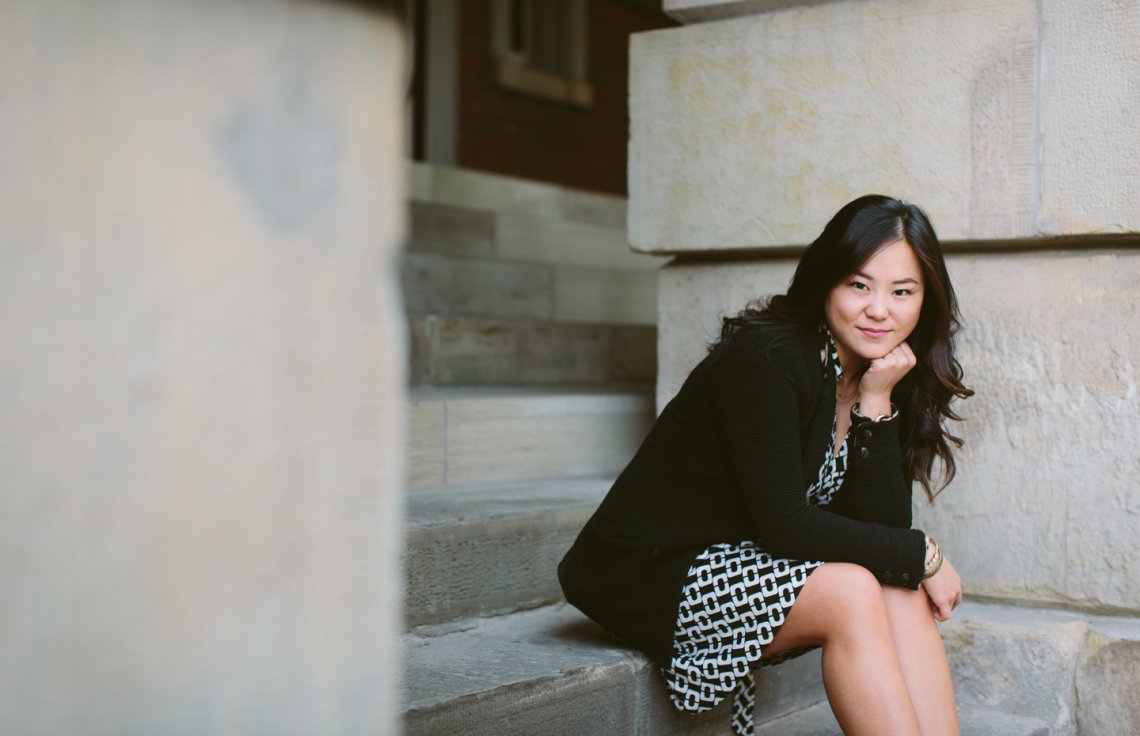
Her Big Break
Can you give us an idea of what a day working as a diplomat looks like? Anything that would surprise us?
7:00AM: I wake up, guzzle down water, take some vitamin B and D, and rush off to the Consulate with my pre-made breakfast in tow. Nothing can replace fresh air in the morning, so I try to take my bike instead of an Uber when the weather allows.
Morning: I'm dealing with applicants for passports or visa cases, and am hyper-focused on making decisions that have far-reaching consequences. Some applicants tell you their life story and get emotional, others might become belligerent if the outcome of their case is not as they would expect—it’s a lot for the brain to process day in and day out.
Lunch: I try to go for a quick, 30-minute workout and get a coffee on the way back before the afternoon starts back up. Then, I eat at my desk.
Afternoon: We have team meetings to go over recent fraud findings and data trends, receive visitors, or conduct outreach to the local community. Last week, I gave a presentation about diplomacy and technology to a local high school.
Evening: Some nights involve receptions at the Consul General’s house. This week, I attended a reception the consulate hosted for the HotDocs film festival, and it was such a treat to talk with diverse filmmakers and feel nostalgia for the days when I was on set.
What’s your favorite part about working in foreign affairs?
I love that I get to help U.S. citizens abroad, some of whom are in tremendous distress after being separated from families and caught in immigration limbo in a foreign country. The practical application of foreign policy has a real impact when I am working in American Citizens services, whether it is visiting an American inmate in a foreign jail or helping secure pro-bono lawyers for destitute mothers who are U.S. citizens abroad without family or friends. Diplomacy is a contact sport, and I am proud that I get to use my media and production experience to craft outreach strategy and produce videos for our Ambassador to Canada. This engagement with local communities is an unprecedented opportunity to conduct cultural diplomacy and promote exchanges in a foreign country.
Have you had any major setbacks along the way, or did you have a moment where you wish you’d done something differently?
After producing prime time series for TV networks in Asia and coming off of that high of getting to interview public figures in politics, business, and media, I found myself unemployed and being turned down even for internships. During my time as a producer, I had experienced an unimaginable growth spurt professionally, and the volatility of the film industry really made me question if I wanted to continue on that path. I moved to Beijing from LA to continue to find my niche, but the timing wasn’t right, so I decided to apply for grad school.
At the same time, I applied to fellowships that would help fund grad school in the U.S. My background in international relations led me to the Pickering Fellowship, which is a State Department-funded international affairs fellowship that pre-selects aspiring foreign affairs professionals, bringing them into the Foreign Service, while supplementing grad school costs. After a series of tests and interviews, I received the Pickering—and my life and career shifted from filmmaker to diplomat.
Some people know early on what their career path will look like, but my career trajectory was very non-linear. Looking back, my accumulated experiences and skills have brought me to where I am today, and I wouldn’t be able to do my job without having experienced those setbacks and turbulent times between careers. I did lots of listening to my inner voice, honoring my intuition, and understanding my unique strengths. If to thrive is to adapt, then you can say that I am thriving.
The life of a diplomat can be challenging and unpredictable. What are some surprising things we should know before signing on for a career in international relations or foreign affairs?
I would say that nowadays, country-specific knowledge doesn’t get you very far in a global context. As diplomats, we are expected to be generalists. The required move every 2-3 years to a new assignment means that we aren’t necessarily experts in any one country, but we have an international perspective of working across borders and cross-functionally.
So much of our work resides in a complex bureaucratic structure bound by laws and regulation, and it is important to understand how that’s advantageous while remaining cognizant of its disadvantages. The advantages are that you are taught to be fully accountable for your actions and think in terms of processes. The disadvantage, though, is the environment becomes inherently risk-averse and slower to change. As a creative at heart, it took time for me to discover innovative ways to problem solve—ways that fit the organizational culture of federal government.
Lifestyle wise, the move every 2-3 years can be stressful and disorienting—it becomes especially hard for family members traveling with you to find fulfilling work in a foreign country far from home. This type of work isn’t for everyone, but it can also be an adventure of a lifetime.

Her Perspective
What’s your best advice for someone interested in working or building a career abroad?
Other than honing in on additional language skills, apply for any and all of the scholarships and fellowships that are out there to support study-abroad programs. Treat it as a part-time job. It really is because the payoff once you do get a scholarship is huge. I was fortunate enough to receive a few scholarships, which paid for my studies abroad and my grad school. The Fulbright, Pickering, and Rangel fellowships are just three of many of that help fund studies and travel abroad.
I also am a huge believer in setting up informational interviews, and (kindly) asking those who are senior to you for their career advice. I still keep in contact with my teachers and first employers from nearly 10 years ago. In this day and age, career paths are non-linear, and you never know when you might want to consult with someone about their expertise. Networking gets a bad rap, but cultivating meaningful relationships is an art form worth practicing. It takes tact, humility, chemistry, and intention to really get right.
What are you after hours tricks for unwinding?
I recently became very interested in naturopathic and alternative medicine. I go to acupuncture about once a week to unwind from days where I am dealing with 130+ visa applicants and reading legal documents between meetings. I also take oil of oregano for its anti-inflammatory properties and love a long bike ride to really unplug.
What’s something you wish your younger self had known when you were just starting out?
I wish I knew that balance is paramount in life, in relationships (work and personal) and in health. You can’t win every battle at work, please everyone, or solve everything, so focus on what brings you joy, and don’t let the things that you cannot control keep you up at night. Most of the time, it’s not personal, anyway.
And finally, what do you wake up looking forward to? What’s next for your career?
I look forward to uplifting my team and bringing positivity to an often stressful, process-regulated environment. There has never been a more exciting time to work in diplomacy, and the impact of technology on policy creates an interesting new space for engagement and dialogue. There is so much opportunity in this area to make real impact, and the people-to-people aspect of diplomacy comes alive when we can use new tools to engage with communities. My next assignment will be in Brazil, so I look forward to acquiring Portuguese and traveling through the Amazon.
You May Also Like
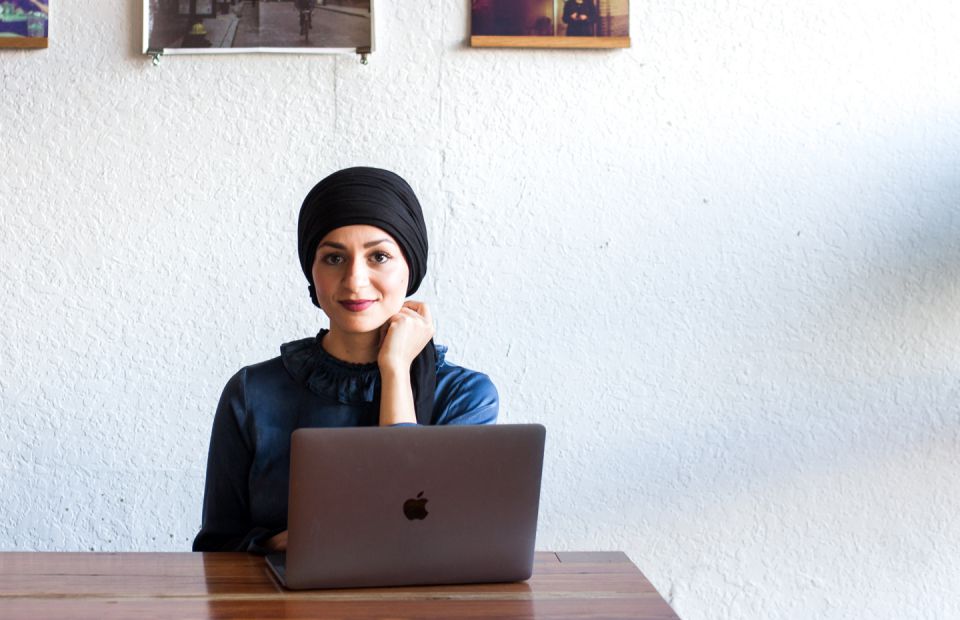
Government + Public Policy
Noor Elkhaldi on Taking a Break From School to Work as an SVU Counselor
"You cannot care for others if you do not care for yourself."
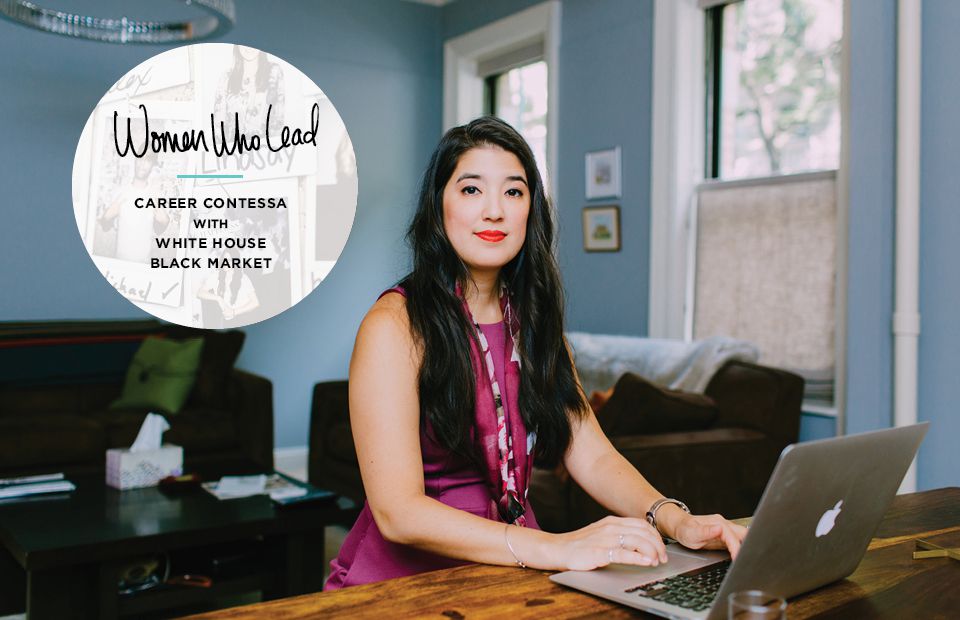
Consumer Services, Education, Finance
Women Who Lead: Alexandra Dickinson, Founder and CEO of Ask For It
On taking risks and asking for more—always.
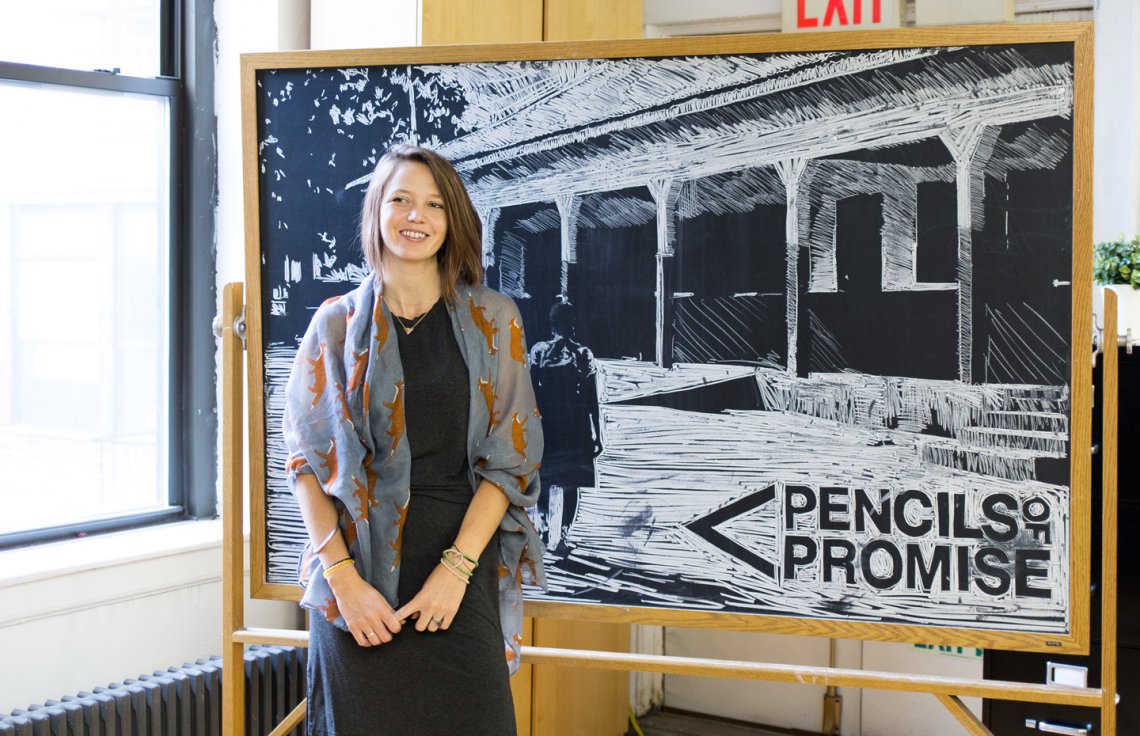
Nonprofit, Social Responsibility
Leslie Engle Young on What a Director of Impact Actually Does
This philanthropic globetrotter found her dream career working at Pencils of Promise.
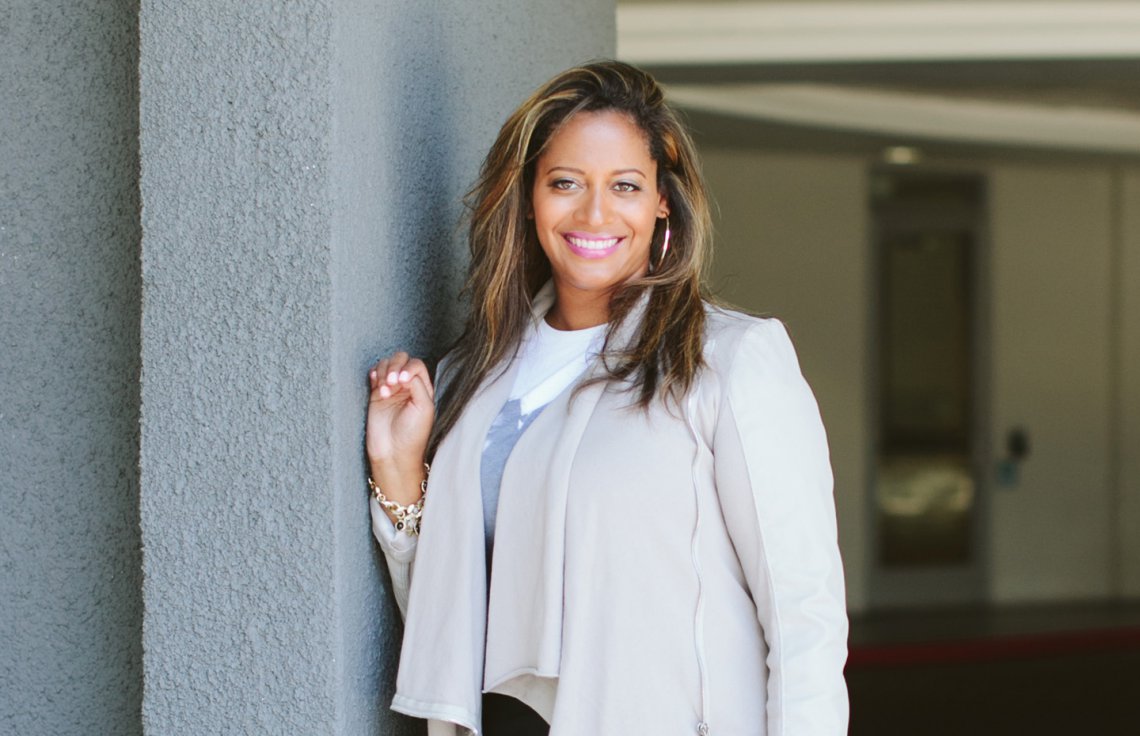
Entertainment, Government + Public Policy
Meet the Woman Behind Your Favorite T.V.
See how Candace's legal background has helped her climb the ladder to a director role at Sony Pictures.
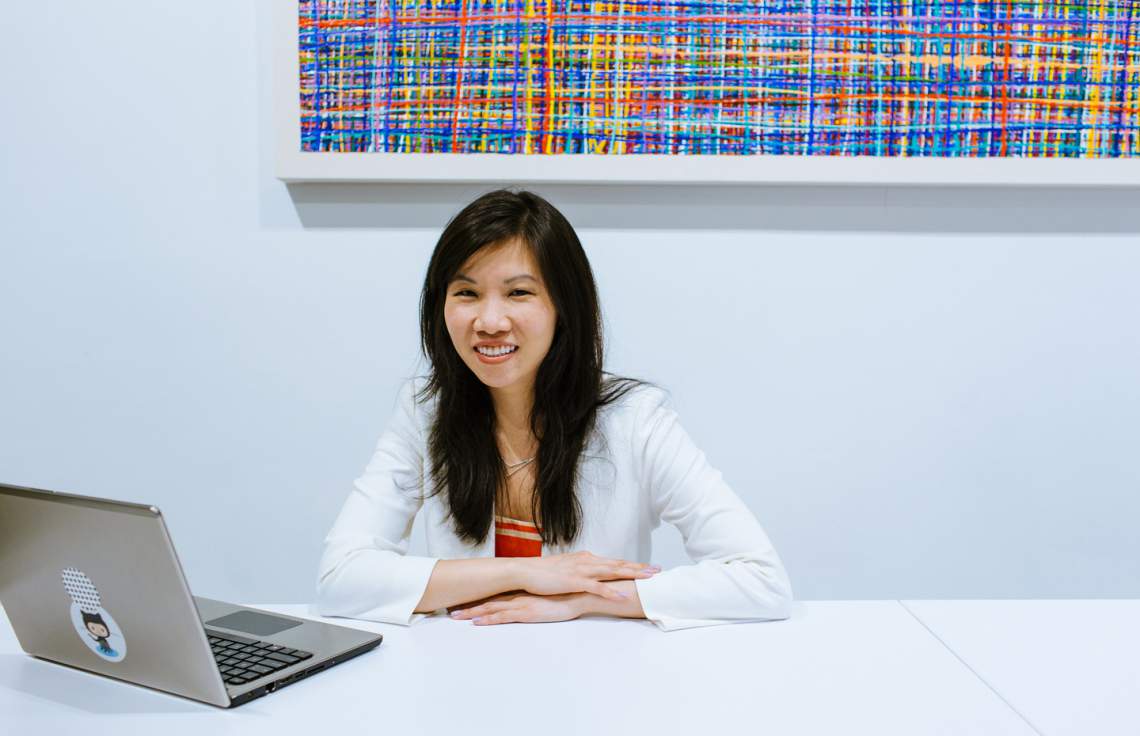
Government + Public Policy
This Millennial Entrepreneur Talks Politics, Activism, and...How to Vote?
Election season's almost over, but Maria Yuan's company, IssueVoter, is just getting started.

Nonprofit, Social Responsibility
The Forbes 30 Under 30 Recipient with a Simple Mission: End Hunger
The non-profit founder talks shaking hands with Barack Obama and why knowing other badass business women changes everything.
Get the Best Career Advice Delivered To Your Inbox
Join our newsletter to stay in the loop.
